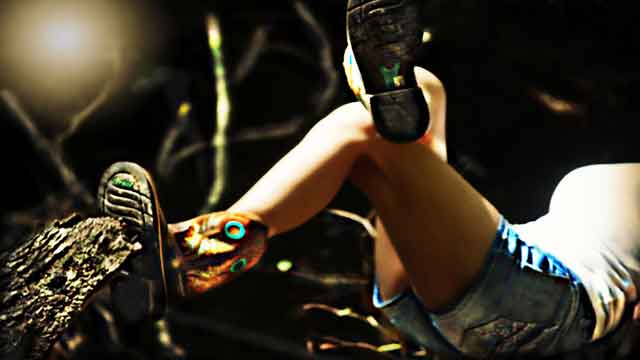Have you ever heard of Feng Shui? I believe it is pronounced Fung Shway or something similar to that. Feng Shui is an ancient Chinese belief that the placement of objects can have an effect on their harmony with nature. This belief also determines the placement of their buildings, landscapes, furniture and pretty much anything in their lives.
The literal meaning for Feng Shui is “wind and water”. But I noticed when watching some HGTV, there are many interior designers that use this philosophy when designing a room. I believe over the years this has actually become more of a superstition than an actual practice, but I may be way off on that.
Personally I’ve never noticed much difference in karma no matter what direction I was sitting or facing. And the placement of the objects in my house have never made a huge difference in so called “luck” or “misfortune”. But then again, this isn’t necessarily a custom in my country either. But to the Chinese it is quite relevant to their every day living and I find it fascinating.
The Science of Feng Shui
So is Feng Shui a scientific formula or is it really in tune with nature? One thing is certain, Feng Shui is both complex and practical. In it’s beginning, it was considered a sort of secret knowledge and was only used by folks of upper class. Mainly for Emperors and the most powerful people in the land. But as the centuries passed it’s social class seemed to diminish and it’s been used by many all throughout the Far East.
If used properly it is said to produce an increase in energy, happiness and success. Yet it’s borders of where it’s power starts and ends are unseen by the human eye. So there really is no true way to measure it’s effectiveness.
A Feng Shui practitioner will actually use a compass in order to determine the exact placement of objects. This is to ensure they are facing the exact angle and direction they need to be to achieve the best results from it’s power. In fact the compass was invented by the Chinese solely for this purpose during the 2nd century B.C. Ahh, and you thought it was developed by the boy scouts to find their way in the woods, didn’t ya? lol, just kidding. Ok, moving on.
The compasses used for Feng Shui are quite a bit different than what you imagine when thinking of a compass. They are called lo pan, and they’re set in a square base. This gives them a good edge to align with a wall or door so an exact reading can be determined. Plus this straight edge will allow an accurate reading of which direction a building is facing when the compass is placed against the wall. Pretty smart huh?
Even though these straight lines are important for measuring the direction objects are facing, it is said Chi should meander gently. Meaning that a road or path that is too straight will travel too fast in a certain direction and may be destructive. They say if the path leading to a door is too straight, you can soften the chi by placing a mirror above the door frame. I’m not exactly sure I understand the reasoning behind that one, but it’s interesting none the less. Could it be the mirrored image creates some sort of bend in the view? Maybe your supposed to look into the mirror when approaching the door, so you’re not focusing on the straight lines.
Hopefully someone that uses this actual practice will comment below and help explain it to us.
Feng Shui and the Dead
In it’s earliest applications, Feng Shui was used to determine the placement of graves. Every single aspect of the landscape would be considered, as well as the date of birth and death of the individual that was being buried. They actually consider this the most important function of Feng Shui, but have integrated it into other aspects of their lives.
It is a common belief that ones ancestors in the past and in the future are relevant to this process. If the respect of your ancestors from the past and present are buried correctly, then it will continue to follow through the generations. Whether any of this has anything to do with Feng Shui or not, I still think it’s good practice to always use respect and care when burying your loved ones.
The Elements of Feng Shui
According to my research, there are many different elements to consider when practicing Feng Shui. Of course the main one we’d think of is direction. But not just North, South, East and West. You would also need to consider the Center point. Within those five directional points lie the Chinese elements of Water, Fire, Earth, Wood and Metal.
Ok, here’s where it gets a bit tricky and I’ll do my best to describe it accurately. The center point is represented by the Earth and the symbolic creature the Yellow Phoenix. Then the East is Wood, represented by the Green Dragon. The West is Metal, with a White Tiger. Then you have South being Fire represented by a Red Bird. And finally North, which of course is Water, and it is symbolic of a Black Turtle. Whoo, barely made it through that one…lol
We’ve all heard of Yin and Yang right? Well of course we can’t leave them out of all this. Yin and Yang is the essence of anything and everything that are opposite of each other. Some examples are Black/White, Man/Woman, Good/Evil, Happiness/Sadness.
It’s said that Yin and Yang exist in everything in the known Universe and it is extremely important to keep a good balance between them. This concept probably makes the most sense to me out of all of this.
I believe that the Universe is made up of equal part of everything on this scale of Yin and Yang. It only makes sense. This is clearly stated in Isaac Newton’s law of gravity, “What comes up, Must come down”. So far in my lifetime I’ve not found anything that can dispute this. As long as there isn’t any human interaction involved, then this follows the laws of nature perfectly.
Once again this is something that is a cultural thing, but finding comfort in a belief is what builds different cultures. So to disagree with it simply because you do not understand it is an attempt to throw the natural order of things out of balance. So I guess if it works for them, then that’s great. But I don’t think I’ll be using a compass next time I get ready to rearrange the furniture. 🙂



The Indian equivalent to Feng Shui is called Vaastu.
The entire concept is based on positions and directions!
Ahh yes, and we’re not talking about native American type Indians. The Hindu Indians use Vaastu as a form of calculating for construction purposes. Such as building Hindu Temples and such, right?
Yes, you are right. I meant the Hindu Indians.
Vaastu is not just used for building temples but also houses. Infact the value of a property could go down if the house is not built as per the basic principles of vaastu.
As per Vaastu, every component of the house is recommended to be in a certain direction / position. For eg: It is best to have the main entrance facing the north-east direction. Master bedroom to be in the south-west of the house, Fireplace in the kitchen should be in the south-east etc. etc.
It is said that there is a lot of science behind these recommendations!
That’s really fascinating, I wonder if they’ve truly found misfortune by not adhering to those guidelines? Would be interesting to hear some of the stories that may back up this belief.
Exactly… i agree with you rummy….thanks for this information…
Interesting!
Such things are as good as your belief!
But yes, FengShui and Vaastu have some basic science behind it like the flow of sunlight and air / wind.
That’s a good way of putting it. They are as good as your belief, if one believes strongly enough in something, then either through mind power or desire, you will see what you want.
Great article! Yes people in India believes very much in Vastu…. and the Chinese Feng Shui is same as Vaastu in India….. Nice information! Thanks
I suppose these practices have been used for hundreds of years, so it’s kind of hard to say there is nothing to them. There must be some great benefit from it or it probably wouldn’t be used in this day and age.
Sometimes it is not the benefit but the “fear” of the unknown.
And if something bad happens (even if it is co-incidental), you just start believing.
Sometimes the less we know about these things, the better!
That’s very true, normally people only remember the times that something did happen related to their superstition. They fail to remember all the times it didn’t work that way.
Yes, it true that mostly people believe in Feng Shui. It helps a lot in placing objects in the house properly so that the positiveness of the house increases. I too believe in vastu shastra. Actually we have to make and design our house according to vastu shastra or Feng shui, chinese vastu shastra. It’s very good for the house and for the people living in it. Thanks for sharing.
That’s some great information SOD. I appreciate you sharing your cultural practices with us on the subject!
Great Article, Feng Shui is being used more and more in businesses to to increase success & prospertity. The main aim is to have your desk in a command position, overlooking the room & with your back to a solid wall!